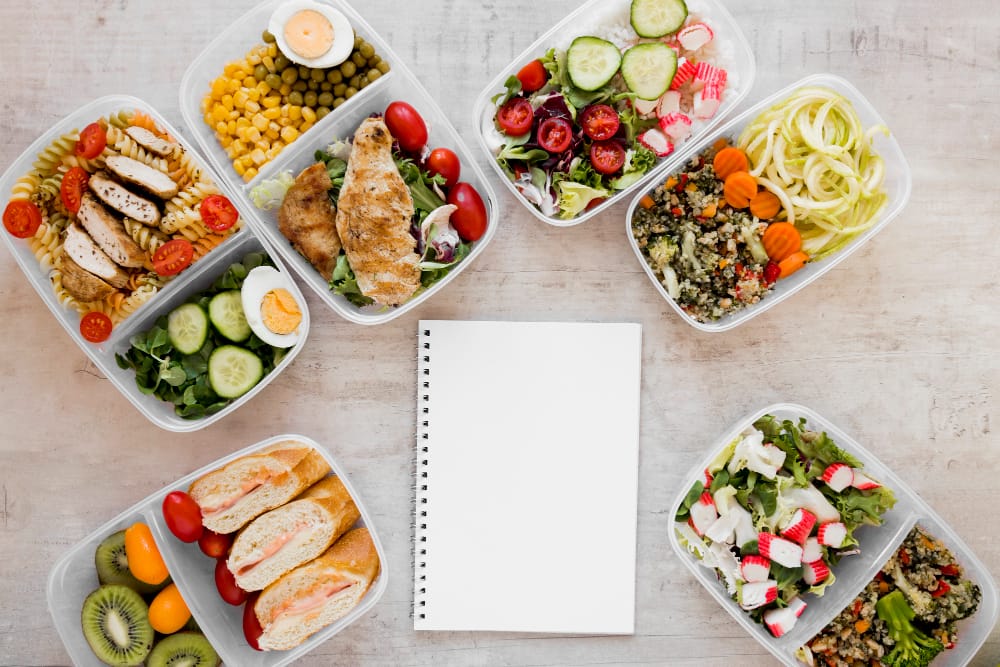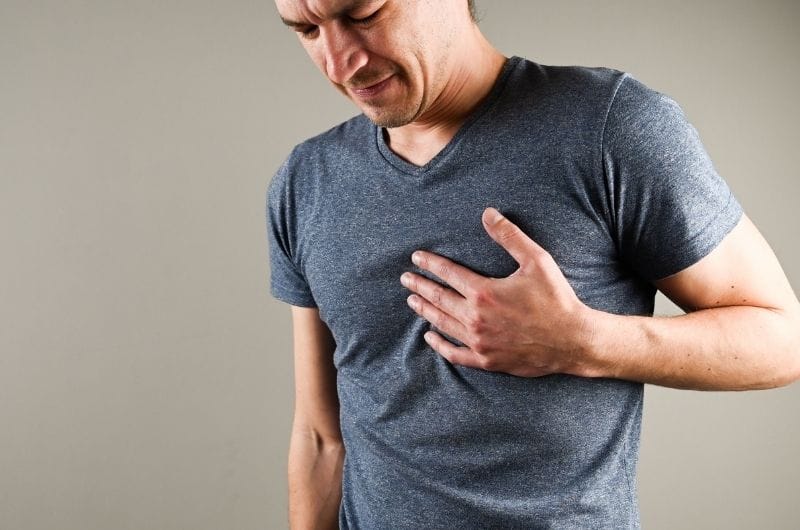GERD can be the main culprit for your hunger pains, especially if your hunger pains influence a certain chest pain. While chronic back pains can trigger GERD within you, there’s a low chance for this to occur vice versa. However, sometimes intense pain around your chest can radiate towards your back as well.
Other factors can also weigh in on your hunger pains, such as hormones, stress, and lack of sleep. The best ways to treat your hunger pains and GERD simultaneously would be by having regular balanced meals and staying hydrated. If you’re having chest and back pains continuously together, it’s best to look at the possibilities of having other health conditions like Pancreatitis.
A hunger pang is typically your biological clock notifying you that it’s time to eat. It may be a mild nagging pain that you’ll feel on the top left part of your abdomen. This may occur from time to time when you’ve not eaten for quite a while, and your stomach is empty. You’ll experience a stronger urge to eat as well.
While such pain is entirely normal to go through, if you’re also noticing a certain chest and back pain, then chances are that your pains are primarily caused by Gastroesophageal reflux disease, also known as GERD.
What is GERD and its correlation with chest pain?
GERD occurs when your stomach is empty. As we all know, our stomach releases hydrochloric acid to break down the food we eat.
However, if your stomach doesn’t receive any food, this acid starts to collect and shoot up your esophagus and harm your stomach walls. This is referred to as acid reflux and is a common cause of hunger pains.
You’ll be pretty surprised to know that this condition, as studied by the Cleveland Clinic, is known to be the most common reason for non-cardiac chest pain. It was determined to cause 22 to a raging 66% of non-cardiac chest pains.
You must be wondering how stomach-related hunger pain can affect your chest. Well, as your stomach acids travel up your esophagus, your muscles start to tighten and cause esophageal spasms, which can result in sudden pangs in your upper chest and throat.
Can GERD trigger back pain as well?
If you’re experiencing back pain along with hunger pangs, it’s a low possibility that GERD may be causing the back pain. Instead, it might be your existing back pain that can be triggering GERD in you.
For example, if you’re dealing with chronic back pain, your stress can end up causing GERD. This is the same for some back pain medications like Nonsteroidal anti-inflammatory drugs or, in other words, pain relievers such as aspirin and ibuprofen.
A 2004 study conducted by the US National Library of Medicine proves a significant increase in symptoms of GERD among patients treated with NSAIDs.
Why are you getting hunger pains?
While GERD may be the main culprit for hunger pangs with chest aches, other factors might also negatively impact your hunger, as listed below:
- Lack of nutrients in your diet – Well, you see even after you fill up your empty stomach, you might notice lingering hunger pains due to the lack of essential nutrients in your meal such as protein and fiber. A balanced diet is always important for a healthy digestive system.
- Your hormones – When you’re used to a certain meal schedule and you happen to miss out on a meal, the hormone is known as ‘ghrelin’ triggers your hunger pangs since ghrelin levels are mainly controlled by your food intake. So always remember to stick to your meal schedule.
- Inadequate sleep – When you lack sleep, your body releases a higher level of ghrelin which leads to a bigger appetite and hunger pangs. This is probably why you’ll notice yourself eating more often when you’re pulling overnighters.
- Stress or anxiety – When you’re facing an emotional state of mind, your stress may misguide you into believing that your body is in desperate need of food, even though it may not. This is more of a fake alarm rather than an actual hunger pain. Either way, it’s best to beware of this common condition and to treat your anxiety.
Other common conditions associated with chest and back pains
| Chest and back pain while eating and after | Chest and back pain when laying down | Chest and back pain when breathing and coughing |
|---|---|---|
| Gastroesophageal reflux disease (GERD) – The horrible thing about GERD is that even after a proper meal, it refuses to go down since your meal may add pressure against your lower esophageal sphincter | Gastroesophageal reflux disease (GERD) – When you’re lying down, gravity helps your acid reflux to travel faster up your esophagus and elevate your hunger pangs. | Rib injury – A fractured rib or an overused rib can cause sharp chest and back pains. |
| Complications in your gall bladder – A gallbladder attack can cause an excruciating pain that radiates to your upper back and feel similar to a heart attack. | Unstable angina – This is caused by blood clots that block an artery. | Pneumothorax – Occurs when air enters your chest cavity, causing your lungs to partially collapse. |
| Hiatal hernia – This refers to a complication where your upper stomach pushes itself further up, through the lower part of your esophagus into your lower chest. | Hiatal hernia – Since acid reflux can be a symptom of this condition, lying down can cause the same effect as GERD. | Pleurisy – This is an inflammation of the membrane that coats your lungs. |
| Pancreatitis – Simply said, this happens due to the inflammation of your pancreas, which can be extremely painful to the extent that the pain may radiate to your back. | Pancreatitis – It’s always advised to sit up straight rather than lay down when suffering from pancreatitis. | Lung cancer – This will initially cause sharp chest pain, which eventually affects your back bone as well. |
6 simple ways to treat your hunger pains
1. Regular meals

The only way to keep your Ghrelin in check is by making sure you eat on time. Even if you’re unable to stick to your mealtime schedule, make sure you have some healthy snacks with you to cover up.
2. Stay hydrated
Drinking frequent sips of water can go a long way when it comes to most health conditions.
A 2019 case study conducted by the US National Library of Medicine provides proof that adequate amounts of water can help fight off symptoms of GERD.
3. Have proper sleep
Sleep deprivation can quite easily cause abnormal food cravings. So, it’s best to get a decent amount of shut-eye for a healthier meal routine.
4. Pick nutritious food
A well-balanced diet is, of course, crucial to keep hunger pains at bay. Meals with lean proteins, whole grains, healthy fats such as nuts and seeds, low-fat dairy products, fruits, and vegetables will help your digestive system immensely.
5. Low-calorie foods that are fulfilling
This home remedy is quite essential if you’re trying to lose weight. Foods such as homemade vegetable soups, green smoothies, and salads will make sure that your stomach isn’t at all empty without having to gain weight.
6. Frequent small meals
If the cause for your hunger pains is GERD, the best way to treat it is by taking tiny frequent meals rather than a few large meals. When you constantly eat something, even if it were small, your stomach will not be empty enough for acid reflux to occur.
Conclusion
If you follow the above-listed guidelines, you can be in charge of your body and prevent hunger pains entirely.
However, even with a balanced meal, if you’re still facing hunger pains or symptoms of breathlessness, constipation, diarrhea, severe headaches, nausea, and sleeping difficulties, chances are that you’re handling something far more significant and more dangerous than hunger pains. If that’s the case, a visit to the doctor’s would be essential.


